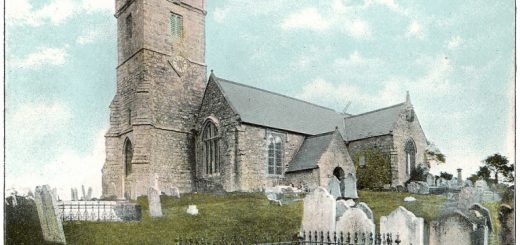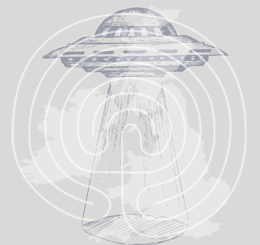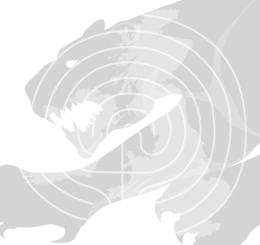Evidence: Life After Death
What is the scientific evidence to support the survival of the consciousness after death. This could overlap with hauntings, mediumship and even re-incarnation, all important topics within the paranormal field, hinged on the belief of life after death. So, is there any evidence?
What is the scientific evidence to support the survival of the consciousness after death. This could overlap with hauntings, mediumship and even re-incarnation, all important topics within the paranormal field, hinged on the belief of life after death. So, is there any evidence?




There’s no obvious evidence
There’s no obvious evidence from hauntings to suggest any link with the question of life after death.
I agree that there is no
I agree that there is no obvious evidence I know of that link it to hauntings. I’d say any evidence connected to hauntings points away from the possibility of Life After Death, but it is still a theory that some people follow so I put it on my list.
Ian Topham wrote:I agree
[quote=Ian Topham]I agree that there is no obvious evidence I know of that link it to hauntings. I’d say any evidence connected to hauntings points away from the possibility of Life After Death, but it is still a theory that some people follow so I put it on my list.[/quote]
How does the evidence point AWAY? I’m curious.
The scientific reality is
The scientific reality is that there is no evidence from any aspect of research to support the notion of the survival of human consciousness after death.
However…..
There are some typical areas where certain researchers (some who should know better) try to shoe-horn a ‘survivalist’ type interpretation in. These areas include, but are not restricted to;
1 – Ghosts / Apparitions = despite over 150 years of research there is no evidence, even from good cases of haunting, for the survival of human consciousness. Most resports pertain to apparitions that appear to be oblivious to their surroundings. This is consistent with a brain-based account – but in addition – even if ghosts were real – the best evidence suggests that they are not intelligent.
2 – Psychics / Spiritualistic mediums = Perhaps the most controversial area and rife with fraud, misperception, wishful thinking and logical errors. This is the least convincing area of research in my opinion.
3 – OBEs / NDEs – these have been researched extensively since the late 1970s. To simplify things – there are two views. One is commnonly referred to as the dying-brain account for NDEs. By this account, the images seen etc are hallucinatory and the interpretations / memories are delusional. They provide no evidence for survival. Others (often referred to as survivalists / dualists / trancendental) think that NDEs do provide evidence for survival of bodily death. People such as Ken Ring, Michael Sabom, Peter Fenwick, Pim van Lommel all think that consciousness is not a brain driven thing. However, their arguments are based on false premises concerning what brain science has to say and logically fallacious reasoning concerning their own data. This does not make for a strong case.
Away was not be the correct
Away was not be the correct way of wording it. I think there is evidence pertaining to hauntings and ghosts that points towards them being hallucinations possibly induced by certain EMF’s. There is a counter argument that spirits materialising produce these fields but there is no evidence of this as far as I am aware and I personally seriously doubt there will be and I don’t know of any evidence to support the Life After Death argument where hauntings are concerned. Therefore I think the evidence is tipped more in favour of a natural explanation that one that supports the survival of consciousness.
I met an investigator last
I met an investigator and I cannot but agree with what he told me "the Afterlife, at least for the time being, is not something for science to debate since it’s a matter of personal faith and that requires careful handling to say the least".
Bear in mind that the person who told me this is a "skeptic" (yes, written this way) and a self-proclaimed debunker.
OBEs and NDEs have been researched but the research has been biased to say the least. For example a few Red Army doctors were required during WWII to list the dying soldiers’ final words and to carefully note if the person involved was an Orthodox Christian, a Muslim, an Atheist etc. This project was initiated to support the petty theories of some important Politburo members and has since been discredited as "heavily biased".
While at the moment we may be starting to understand the basic chemistry of life (which is much more complicated than we thought) there still is suspended judgement on what "consciousness" exactly is. Personally I think it’s best to leave it that way until our knowledge is more adavnced in that direction.
Maybe I’m being dim but what
Maybe I’m being dim but what has consciousness got to do with life after death? Consciousness is just that part of the operation of the brain which puts together a simplified virtual picture of the world so that we can operate in it. When we’re asleep it’s not even operating (except perhaps for dreams). If consciousness is related to life after death, what happens if you die in your sleep?
As I understand it, there’s
As I understand it, there’s still some pretty major questions as to the pecise mechanics of consciousness, and some have suggested collective conscious – whereby elements of an individual’s conscious are "stored" outside of the human body – as the mechanism for the survival after death of memory, and how mediums etc "contact" the dead.
I agree there is still lots
I agree there is still lots to learn about consciousness. However, given its known properties, it seems an unlikely vehicle for survival, as my ‘sleep’ paradox illustrated.
It’s not a question of
It’s not a question of whether someone is asleep or awake, or even alive or dead. According to theories of collective conscious, certain elements of personality, memory etc are recorded completely independently of the physical body.
No, I still don’t get it.
No, I still don’t get it. How can you be part of a collective conscious when you’re unconscious?
Because individual
Because individual consciousness is a physcial thing, whereas the collective conscious is a metaphysical thing. You’re best asking someone with more knowledge of occult matters for more details, or reading the relevant bits of Karl Jung’s work. Dean Radin has also written a book called "The Conscious Universe" which I’ve yet to get round to reading, but I understand also contains discussion on this sort of thing.
I always look at it along
I always look at it along the lines of “I think, therefore I am” and when I refer to survival of consciousness I tend to mean retaining the ability of conscious thought and a self awareness.
So we’re not talking about
So we’re not talking about real everyday consciousness at all then, but some theoretical construct.
If that’s the case then I think it is important to distinguish from the consciousness we all experience every day which is the result of brain activity. It’s important because discoveries about real brain consciousness may be completely irrelevant to this metaphysical collective consciousness.
This answers my question ‘what has consciousness got to do with life after death’? Answer: nothing obvious (I was refering to normal everyday consciousness).
They’re not mutually
They’re not mutually exclusive – my understanding is that we don’t know exactly how consciousness or memory works. It’s speculated, therefore, that we all retain some element of ourselves away from our physical bodies. Hence, those elements stored extra-bodily survive physical death and so allow "communication" from beyond the grave via this metaphysical structure.
Although this all operates outside of the known mechanics of everyday conscious, it doesn’t mean that facets of everyday conscious aren’t involved.
I think we know enough about
I think we know enough about consciousness to say that it’s definitely a brain function. No brain – no consciousness. No one has ever measured consciousness in something without a living brain.
I think you need to come up with a new word to describe what you are talking about.
Mysteryshopper wrote:
I
[quote=Mysteryshopper]I think you need to come up with a new word to describe what you are talking about.[/quote]
I am inclined to agree with you here. What do you suggest?
I make no claims as to a
I make no claims as to a suitable knowledge of psychology, so I can’t counter your argument or agree with it.
However, the use of the prefix "collective" is to distinguish it from the conventional model of individual brain-based conscious, so why do we need a different word? For the record, variations of this theory are ages old – in the past it’s been called the Akashic Record, and I think there’s also some Planck-related quantum thinking on the matter.
I’d be interested to learn of evidence that conclusively limits consciousness and/or memory to physical brain functions.
OK, we can call it the
OK, we can call it the ‘collective unconscious’. I’ve no problem with that.
You have to understand that if you asked any neuroscientist about consciousmess, they may not be able to fully explain all its functions yet, but they would all agree it is undoubtedly a brain function.
Mysteryshopper wrote:OK,
[quote=Mysteryshopper]OK, we can call it the ‘collective unconscious’. I’ve no problem with that. [/quote]
Yikes, it must have been a tough week – collective unconscious is indeed the right term. Warned you it wasn’t my speciality subject!
Perhaps it was my fault by
Perhaps it was my fault by not specifing what I meant by "consciousness".
It’s all down to my old philosophy teacher "Consciousness is what makes human beings as opposed to a simple catalogue of protheins, fats etc".
Call it Baron von Frankenstein’s lighting strike, if you like…
Jumping Right In
Ok: Let’s make one thing clear, science poorly understands all subjects even touching on this thread. We don’t understand death well. We don’t understand our own minds well, and the actual scientific investigation into life after death I do not believe has had any significant or even serious studies or experiments outside of Anthropologists doing studies on faith and superstition.
When science has a more or less working theory of when or even how the non-physiological aspects of death take place, we should re-open this thread to further discussion.
A note: Our minds are at least partially energy. Energy is neither created nor destroyed. Is this the soul? I do not know.
Summum Nec Metuam Diem Nec Optima
BaronIveagh wrote:When
[quote=BaronIveagh]When science has a more or less working theory of when or even how the non-physiological aspects of death take place, we should re-open this thread to further discussion.A note: Our minds are at least partially energy. Energy is neither created nor destroyed. Is this the soul? I do not know.[/quote]
Which non-physiological aspects are those, please?
i never use the word ‘mind’ because it is too vague to define. Look at how wikipedia struggles to define it. What is certain is that ‘mind’ is to do brain function rather than structure. While the brain’s structure uses energy to produce the phenomenon of ‘mind’, it is not in itself energy, even in part. It is like the software of the brain – it requires the brain to run.
Can you clarify why you think ‘mind’ consists in any way of energy, please?
Electroencephalography
Because the frequency and pattern of the electrical energy generated by our brains changes with changes in consciousness and interpretation of outside stimuli.
Summum Nec Metuam Diem Nec Optima
The link below is to a paper
The link below is to a paper by psychologist Susan Blackmore who has more or less dedicated her career over the past ten years to research into life after death and Near Death Experiences. It’s a brief overview, but lists some of the work and the current theories on this subject.
http://www.susanblackmore.co.uk/Chapters/ShermerNDE.htm
Blackmore’s work in this field, and her older stuff in the paranormal field is well worth a read. She tends to give an interesting insight into the paranormal from a psychological point of view.
Perhaps instead of referring
Perhaps instead of referring to ‘the mind’, it would be more appropriate to use the term psyche, in a Jungian sense
"By psyche I understand the totality of all psychic processes, conscious as well as unconscious’, so we use the term ‘psyche’ rather than ‘mind’, since mind is used in common parlance to refer to the aspects of mental functioning which are conscious. Jung maintained that the psyche is a self-regulating system (like the body). " – Jung
Modern research is
Modern research is comprehensive. Please refer to the work of Kelly et. al. in "Irreducible Mind" for a good survey of the contributions particularly of neuroscience to this field. It is quite a bit more comprehesive than you might think. The current status is that neuroscientists are becoming more comfortable every day that we are closer to identifying the area within the brain where the nexus of consciousness and brain interactions are found. It has even been suggested that this may involve inter-dimensional communication and that such communication may be nothing more than an extension of the mechanisms of normal memories. What a kick that would be should it prove true.
I super-string, therefor I
I super-string, therefor I am?
Summum Nec Metuam Diem Nec Optima
Re: Evidence: Life After Death
All this is based on faith and experience. Some people claim that they have actually seen deceased loved ones and communicated with them. Science cannot prove that they are lying; so they might be telling the truth. We cannot turn to science, philosophy, or religion for answers to all these things. We have to find the answers ourselves.
Re: Evidence: Life After Death
More than likley not. It will be exactly like before you were born. Nothing! So enjoy your life to the max! Cos once its gone its gone.